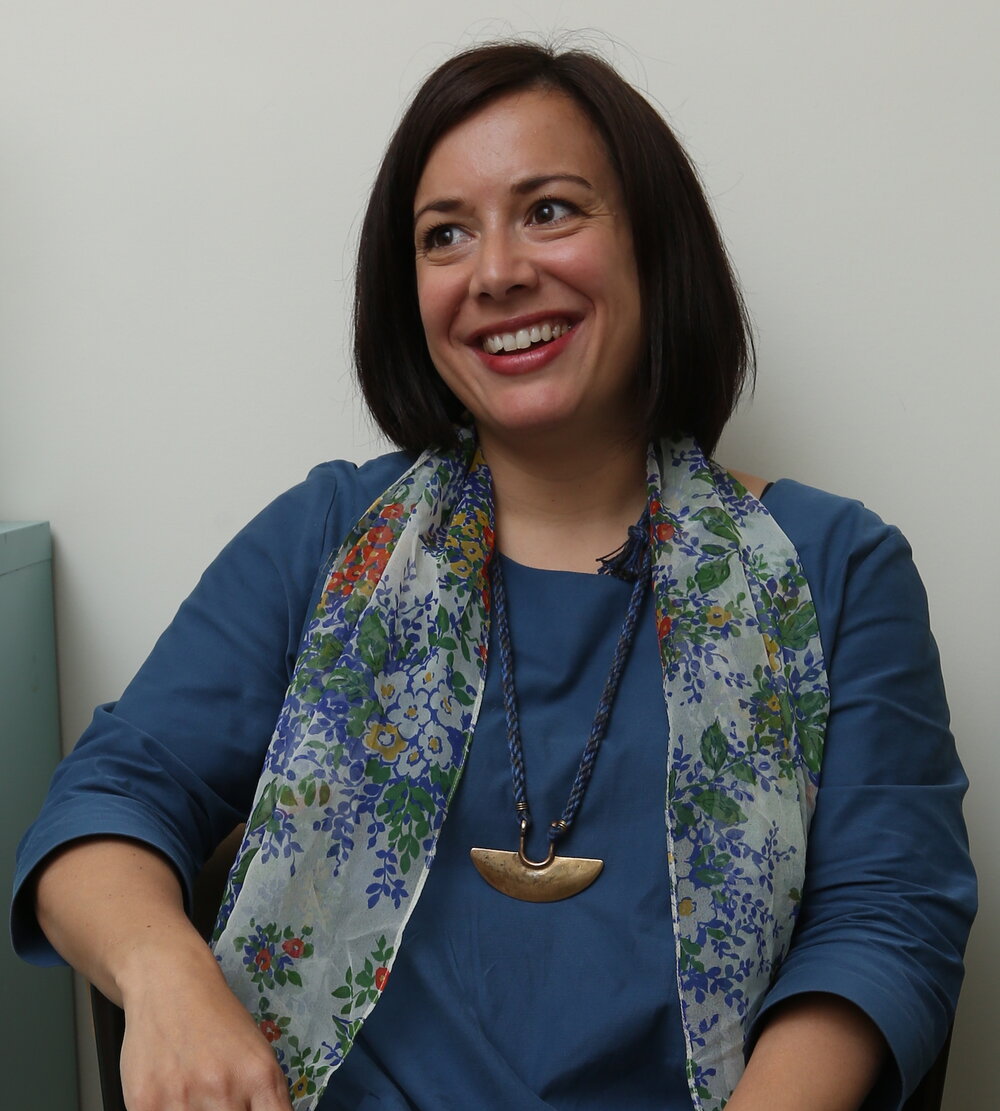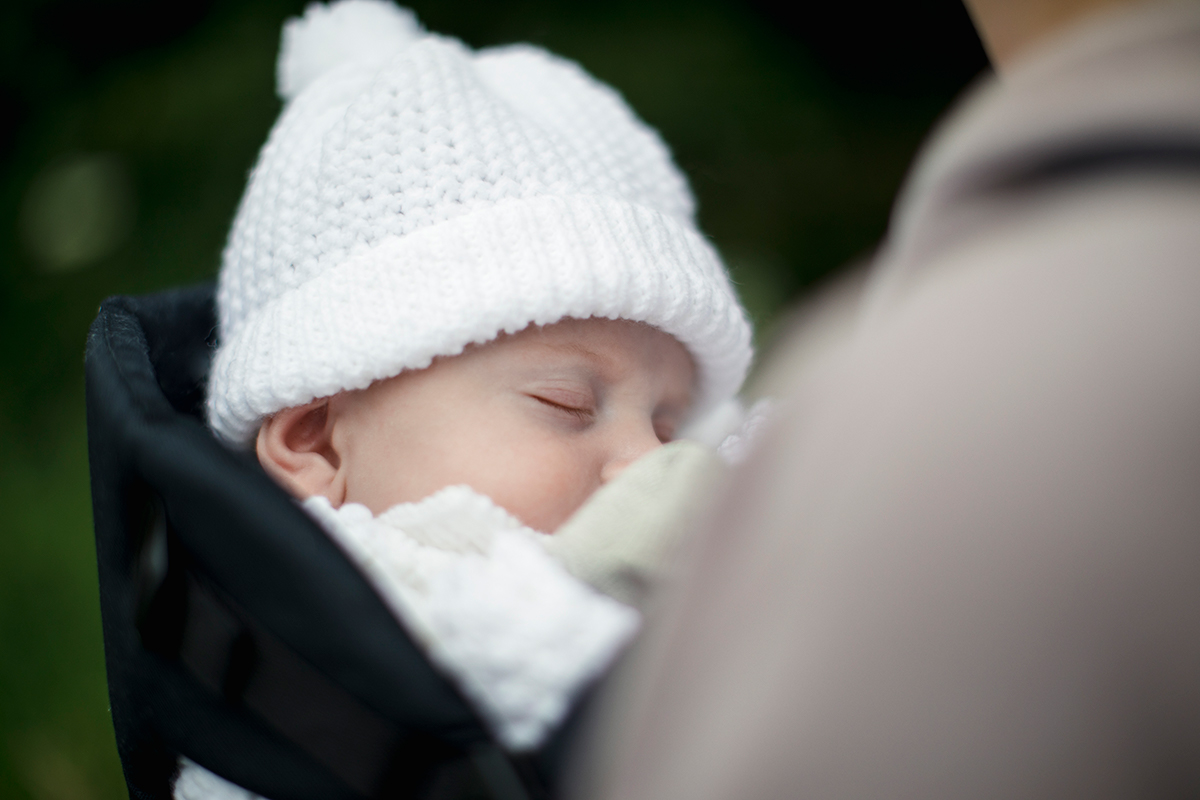Age, race, gender, sexual orientation — they all play a part in how we define ourselves, as do ethnicity, ability, religion/spirituality and socio-economic status.
Aurélie M. Athan, Research Professor in TC’s Department of Counseling & Clinical Psychology and a clinical psychologist specializing in maternal mental health, argues that another term should be on that list: “reproductive identity,” or how a person self-identifies when it comes to experiences related to the question of if, when and how to have children.
“While parenting used to be a given in most societies — an expected, perpetual consequence of heterosexual sex and an unquestioned life goal after the onset of puberty and marriage — it is now for the most part volitional,” Athan writes in her paper “Reproductive Identity: An Emerging Concept,” published this past spring in a special issue of the journal American Psychologist. “The fact that a broader range of people can choose to have children regardless of partnership status, postpone it to a later age, or abstain altogether and enjoy sex for its own sake, is indeed remarkable. This burgeoning era of gender, sexual and reproductive self-expression necessitates a new metaphor reflecting the freedom to write one’s own story.”

BRINGING COMPASSION Athan's goal is to normalize discussion of decisions about having children by "taking it out of the shadows of fear and risk." (Photo: Bruce Gilbert)
With that freedom, of course, comes the potential for outcomes that can be challenging for parents and children alike. But “you have to name it to tame it,” Athan says. “And it’s been very strange to me that ‘reproductive identity’ — putting those two things together, like we would do ‘gender identity’ — has been largely silent as a term.”
Certainly, she allows, “we’ve come a long way in identity understanding,” and there are now many more options for reproductive expression (egg freezing, surrogacy, IVF, abortion). Yet not everyone is guaranteed equal access to these options, nor, for many contemplating them, has there been an accompanying change in attitudes, familial pressures, or cultural norms. Most of the world, Athan says, is still essentially “pro-natalist” while also leaving reproductive health inequities unaddressed.
“Those who are parents have more power in the society than those who aren’t. And there's a lot of stigma around being childless. There are also social communities for whom pregnancy or parenting is not supported and even demonized. I think we need to have a much more open discussion and discovery process — first, of who a person would like to be in this space, and then by meeting them with the tools and decision-making processes to do that.”
This burgeoning era of gender, sexual and reproductive self-expression necessitates a new metaphor reflecting the freedom to write one’s own story.
—Aurélie Athan
Athan’s theory of reproductive identity formation grows out of her research on “matrescence”— a term she uses to describe the transition to becoming a mother as a developmental phase, like adolescence. In her classes on matrescence, where a majority of the students are women in their 20s to 40s, Athan has discovered that most haven’t explored their own identity as mothers or potential mothers-to-be.
“It happens now like clockwork, every year,” she says of her classes. “Somebody raises a hand and says, ‘I kind of have a confession to make…I wish I was infertile, so that I wouldn't have to make this decision.’ And then slowly, more and more hands come up and there’s this wave of, ‘Oh, yeah, me too.’ Or someone might say, ‘You know, I kind of wish an accidental pregnancy would happen so that I wouldn't have to think about it. Because I don’t know how to begin to even start and it feels so overwhelming.’ And again, hands will come up, and people are saying, ‘Me too.’”
Addressing those feelings when the question isn’t staring you in the face is critically important, she says.
“So many people have never taken the time to even think about those things, or else it took a crisis for them to do so. Often, we don't even know what our values are, what our desires are, until a crisis brings them into focus.”
Traditionally, Athan says, the reproductive life planning paradigm—the decision of whether or not to become a parent, or what used to be called “family planning”—focuses on “if, when, how.”
“But I like to say that it’s actually if, when, how and who,” she says. “Meaning, do I have the psychological desire to do this. Do I want to become a parent? How do I know that? Where, what did I see around me, that influenced me? As we know, each person's reproductive identity intersects with their other identities in unique ways.”
I like to say that it’s actually if, when, how and who. Meaning, do I have the psychological desire to do this. Do I want to become a parent? How do I know that? Where, what did I see around me, that influenced me?
—Aurélie Athan
Just as important, “who” is not a question for women only. Athan defines reproductive identity as non-binary, fluid, and existing on a spectrum that is purposefully open-ended to also include men, people in the LGBTQ community — in short, anyone and everyone who faces the question of whether or not to become a parent.
“It’s expanding the conversation from the more traditional pregnancy prevention approach, which immediately sends a message this is just for girls and women to think about, by offering an alternative term that’s inclusive enough to bring everybody to the table.”
Athan isn’t merely writing about these issues. For the past three years, reproductive identity has been central to the curriculum she developed (together with Riddhi Sandil, Associate Professor of Practice and Director of the College’s M.Ed. program in Mental Health Counseling) for TC’s Sex Education Initiative, a training program for science, health, and sex-ed teachers in New York City that is headed by Athan and funded by New York City psychoanalyst and TC alumna Dr. Mary Edlow (M.A. ’67).
Participants such as Clement Gomes, who heads the science department — and the Rainbow Alliance — at the independent Churchill School in Manhattan, have been enthusiastic about the program.
It’s expanding the conversation from the more traditional pregnancy prevention approach, which immediately sends a message this is just for girls and women to think about, by offering an alternative term that’s inclusive enough to bring everybody to the table.
—Aurélie Athan
Some 30 percent of the students at the school are adopted, “which adds a whole layer of reproductive identity right there,” says Gomes, who earned his Ph.D. in Science Education from TC in 2014 and participated in the program’s first cohort.
Gomes teaches reproductive identity to middle-schoolers in his seventh- grade biology class. “Starting at a younger age, when it's all kind of new, and exposing them to this information — I think they’re just more open to it,” he says. “A student may have two dads who had an egg donor. Or three parents because an egg or sperm donor is still part of their life. So a lot of questions come up.”
Just recently, Athan and Teachers College received a new three-year gift from Edlow that aims to put the concept of reproductive identity on a larger footing. Called the Edlow Reproductive Literacy Project, it encompasses the Sex Education Initiative and Athan’s continuing research, with a goal of mainstreaming the concept of reproductive identity into course work in graduate psychology and social work programs. [Read a story on the new gift by Mary Edlow and read a statement by Edlow about her commitment to these issues and her collaboration with Athan and TC.]
“This all sits on the bigger conversation of reproductive rights, autonomy, and choice and the more recent theoretical paradigm of reproductive justice,” says Athan says, who, with her team, is in the process of creating a definitive source guide and a new website, reproductiveidentity.com, with more user-friendly language that should help explain the concept. “It’s really this inalienable right to identify, self-identify in the way you see fit and to not have anyone tell you who you are.
The pressing issues of today, such as COVID, racial injustice, mass incarceration or immigration and the separation of families, high black maternal mortality rates, work/family stress, lack of affordable childcare, climate change — all of these issues reveal reproductive disparities that must be reimagined and reengaged with each new generation and situation.
—Aurélie Athan
“But at the same time, it's not just about personal agency, because people’s reproductive identities are being shaped by wider social forces. The pressing issues of today such as COVID, racial injustice, mass incarceration or immigration and the separation of families, high black maternal mortality rates, work/family stress, lack of affordable childcare, climate change — all of these issues reveal reproductive disparities that must be reimagined and reengaged with each new generation and situation.
“The end game is bringing compassion to the subject by normalizing it and taking it out of the shadows of fear and risk. We all have a psychological relationship to our reproductive experiences. They’re meaningful, they’re impactful, they shape us. And we need places to be able to voice them and talk about them and make meaning and sense of them — and then arrive at some peace with them. Because so much of how we look at ourselves and the decisions we make depends on that understanding and acceptance.”
